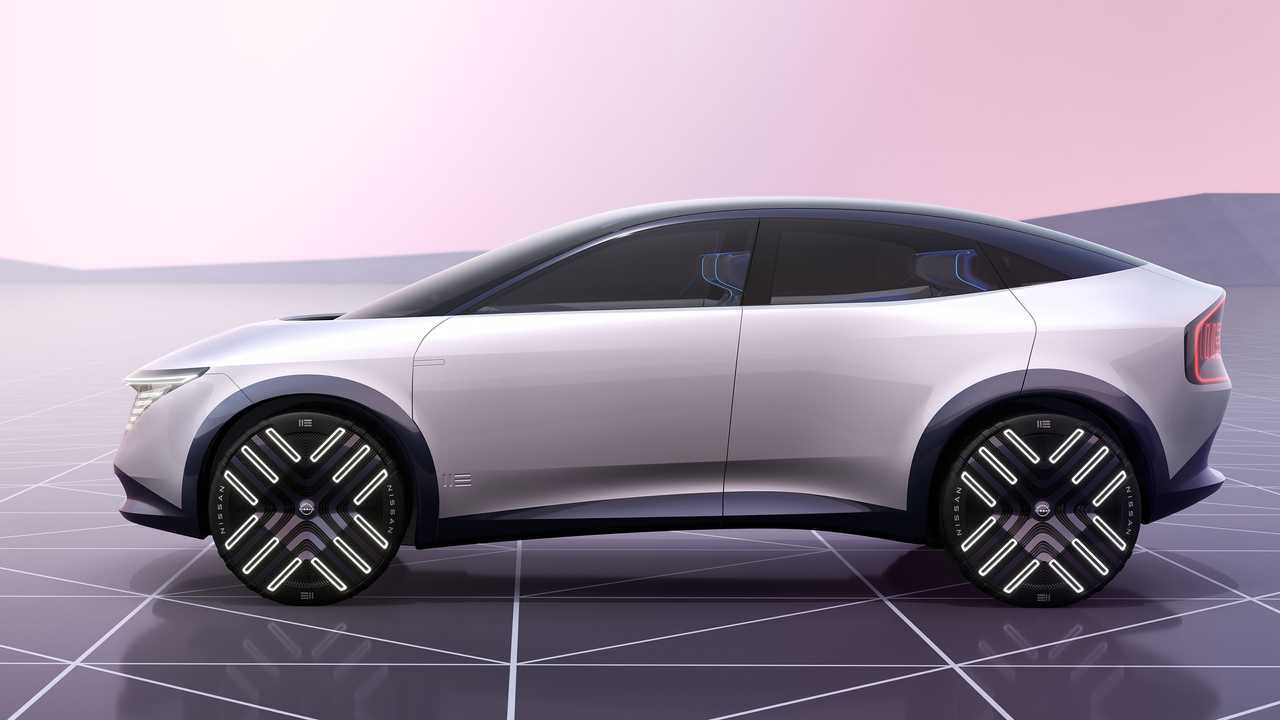Nissan is set to launch 27 electrified vehicles globally by 2030, with 19 of them being battery-electric models, according to sources who attended the brand’s annual dealer conference in Las Vegas. This includes both Nissan and Infiniti branded vehicles.
During the conference, around 3,000 dealership executives were shown three new electric vehicle (EV) models that are expected to debut within the next seven years. These include a crossover coupe-type replacement for the Leaf EV, a performance sedan that could replace the current ICE-powered Maxima, and a battery-powered crossover based on the CMF-EV platform used by the Ariya crossover and the European Renault Megane E-Tech hatchback.
The next-generation Leaf is rumored to offer 25 percent more range than the current model, resembling “a mini-Ariya.” Currently, the Leaf has a maximum EPA-estimated range of 212 miles, so the next-gen model could have up to 265 miles of range on a full charge.
In May, it was reported that the replacement for the current all-electric hatchback will be manufactured at Nissan’s Sunderland factory in the United Kingdom, with production scheduled to begin in 2026. A preview of the Leaf successor, called the Chill-Out study, was showcased at the end of 2021. It is expected to feature solid-state batteries, dual-motor all-wheel drive, and provide a high level of comfort and an energizing driving experience.
Information about the upcoming sedan is scarce, but Nissan plans to produce two electric sedans at its Mississippi plant in 2026: one under the Nissan brand and the other under the Infiniti brand.
Nissan’s e-Power series-hybrid technology will also be introduced in the United States, starting with the redesigned Rogue crossover set for release in the second half of 2026. Currently, Nissan does not sell any hybrids in the US market, even though this technology, which combines a battery-powered electric motor with a gasoline engine, has been available in Japan since 2016.
Furthermore, Nissan is advancing its development of solid-state batteries, with plans to enter the pilot production phase in Yokohama, Japan next year. According to a dealer who attended the meeting, these slimmer battery packs are expected to offer 100 miles of driving range after a quick 15-minute top-up.
Overall, Nissan is making significant strides in its electrification efforts, with a strong focus on expanding its electric vehicle lineup and advancing battery technology.
New Leaf Shown to Dealers as Nissan Plans to Introduce 19 New EVs by 2030
The electric vehicle (EV) market has gained significant traction in recent years, driven by growing concern for the environment and a shift towards sustainable transportation solutions. Nissan, a prominent player in the EV space, has been consistently paving the way for electrification. In a recent move, the company showcased its new Leaf model to dealers, while also announcing ambitious plans to introduce 19 new EVs by 2030.
The Nissan Leaf, often touted as one of the most successful EVs to date, has been a game-changer in the industry since its launch in 2010. With over 500,000 units sold worldwide as of early 2021, the Leaf has solidified Nissan’s reputation as a leader in the electric vehicle segment. It was also the first mass-market EV to be made available globally.
The unveiling of the new Leaf to dealers is indicative of Nissan’s commitment to further advancing EV technology. The updated model boasts not only improved range and battery efficiency but also enhances overall driver experience with advanced safety features and cutting-edge technology. By showcasing the Leaf to dealers, Nissan intends to garner support and enthusiasm from its network of partners, strengthening their position as they embark on an endeavor to introduce a plethora of new EVs over the next decade.
Nissan’s bold plan to launch 19 new EVs by 2030 aligns with the company’s vision to achieve carbon neutrality across its operations and the life cycle of its products. With its long-standing expertise in EV manufacturing, the company aims to address the pressing need for sustainable alternatives to conventional gasoline-powered vehicles. The ambitious lineup of upcoming models is expected to cater to varying market segments, including consumer vehicles, commercial vehicles, and electric SUVs.
In addition to expanding their EV portfolio, Nissan is also actively engaged in research and development to enhance battery technology. The company’s focus is on optimizing the performance, durability, and cost-effectiveness of batteries. This commitment to innovation is crucial as the EV market continues to evolve, and consumers demand longer ranges, faster charging times, and more accessible pricing.
Nissan’s dedication to electrification extends beyond its vehicle lineup. The company is also investing in charging infrastructure development and establishing partnerships with both public and private entities to accelerate the adoption of EVs. By investing in a robust charging network, Nissan aims to alleviate range anxiety and promote widespread EV adoption across markets.
The introduction of 19 new EVs by 2030 not only demonstrates Nissan’s commitment to a sustainable future but also serves as an indication of the growing market potential for electric vehicles. As EVs become increasingly mainstream, this move positions Nissan favorably in an evolving industry. Moreover, it amplifies the urgent need for other automakers to follow suit and prioritize the development and deployment of EVs.
Nissan’s announcement serves as a powerful reminder that the key to achieving a sustainable future lies in the collective efforts of the automotive industry. Rapid advancements in battery technology, coupled with increased charging infrastructure, will be pivotal in accelerating the global transition to electric mobility. As Nissan paves the way towards a future with zero-emission transportation, it exemplifies the company’s commitment to driving change and shaping the future of the automotive industry for the better.

